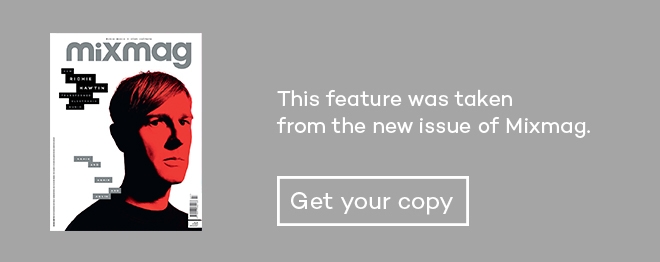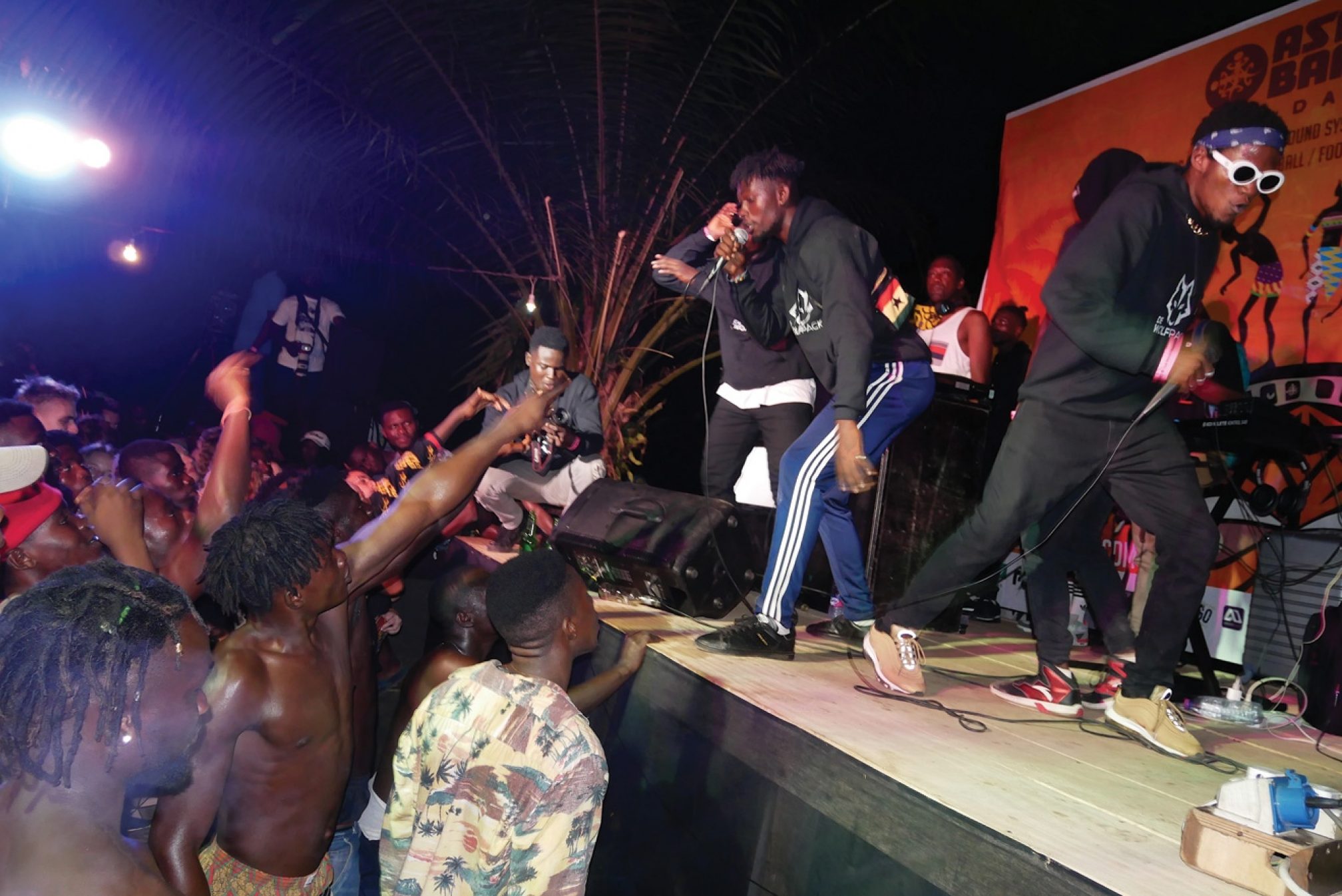 Scene reports
Scene reports
One dance: Ghana's Asa Baako is the festival set on uniting African music lovers
Asa Baako takes over a remote fishing village for anything from afrobeats to Balearic
The seeds of tonight’s festival, which is clustered along the shore of a remote fishing village in the Takoradi Western Region of Ghana, West Africa, were first sown thousands of miles away. In London, in fact, where three good friends – an Englishman, a Ghanaian and a Nigerian, with work backgrounds as varied as their nationalities – were enjoying a lively, well-oiled night out and started to think ‘what if?’ That was 10 years ago now, and it took three more years of blood sweat and tears from Richard Goddard, Kofi Debrah and Yemisi Mokuolo to make Asa Baako (‘one dance’ in Ghana’s Akan language) a reality. Seven years on from its launch, it’s approaching perfection.
A lively and picturesque three-hour bus journey along the Cape Coast from the capital, Accra, the fishing village of Busua is sunkissed and brimming with colour. There are 10 festival zones spread across the beach and town, many centred around beach bars and venues and others more improvised, the tropical water lapping at your feet while thick vegetation rustles gently in the breeze overhead. Aside from live music and DJs, there’s a programme of open mics, wellness, boat trips, treks, tours, surfing, beach football and volleyball. On Saturday night at Sundown, the organisers lead revellers deep into the bush to a secret location for a jungle party until dawn. And while Asa Baako is relaxed and easygoing, with no wristbands or no-go areas, there are also optional programs where you can give something back, including educational projects, workshops in the local community (with people who you were dancing side-by-side with at 3am), a tree-planting project, daily beach clean-ups and children’s workshops. As Richard says, they’ve always been firmly committed to creating sustainable tourism in the area – and not just for the week of the festival, but from the word go.
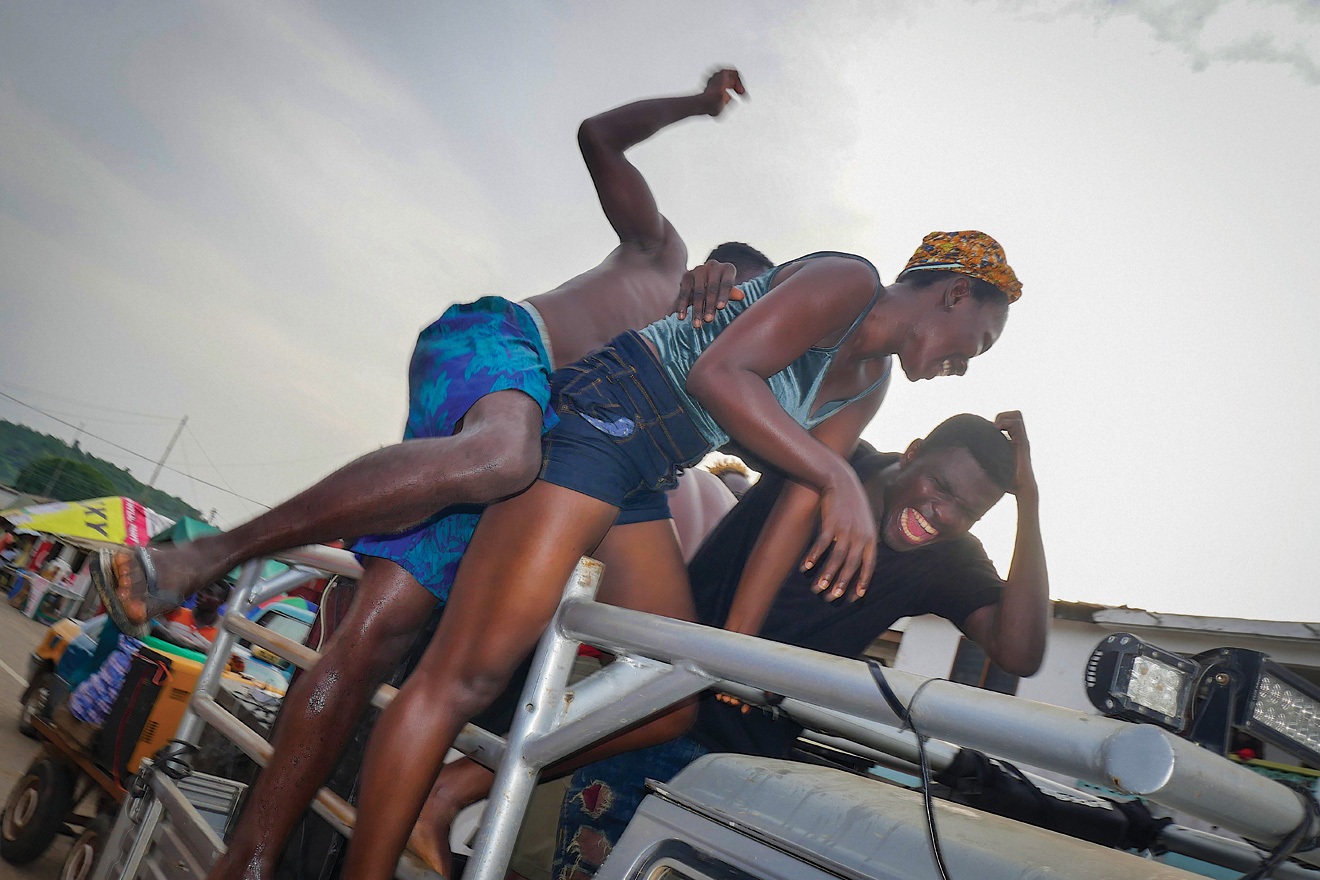
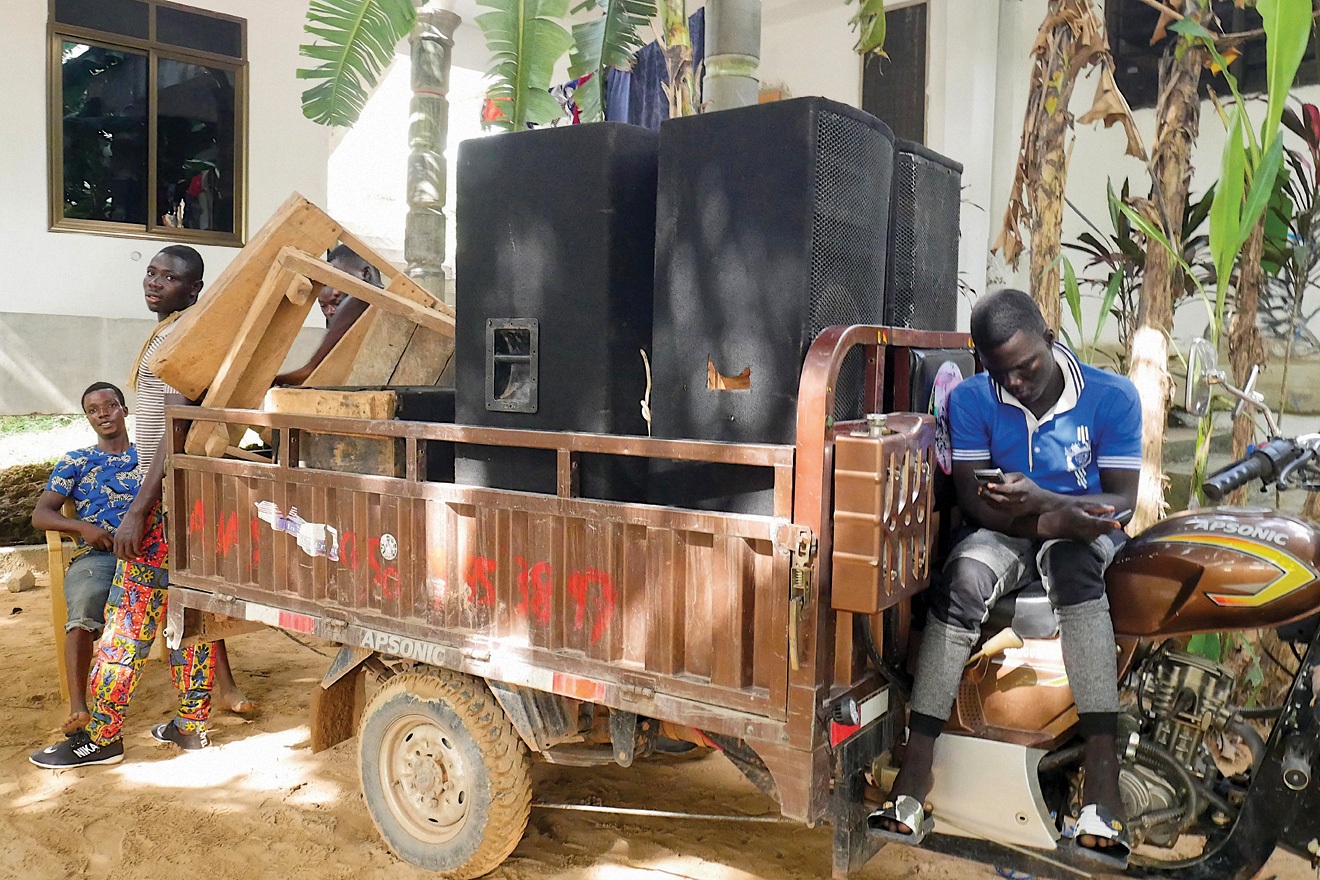
The music is the focus, though, and while there is definitely a ‘local’ vibe to everything, this year is all about promoting sounds from Ghana and all over the continent, directly supporting the growth of musicians in the Western region, as well as international artists from further afield – and festival-goers come from across the Western region of Africa, with a growing number from overseas. On the bus ride alone are voyagers from across the region, but also as far away as Norway, Poland, Wales and Japan. As festival co-producer Yemisi says, “Asa Baako is a place where people can experience a rare international gathering supporting local artists and enjoy a unique sound-plate of African music,” says Yemisi. “We aspire to provide a place in Ghana for change-makers and music lovers from across Ghana, Africa and the world to come together.”
“We’ve all been waiting for Asa Baako, a truly magical festival experience that has its own unique style rooted in Ghanaian culture, says UK-Ghanaian hip hop artist M3NSA, “bringing everyone together into one dance.”
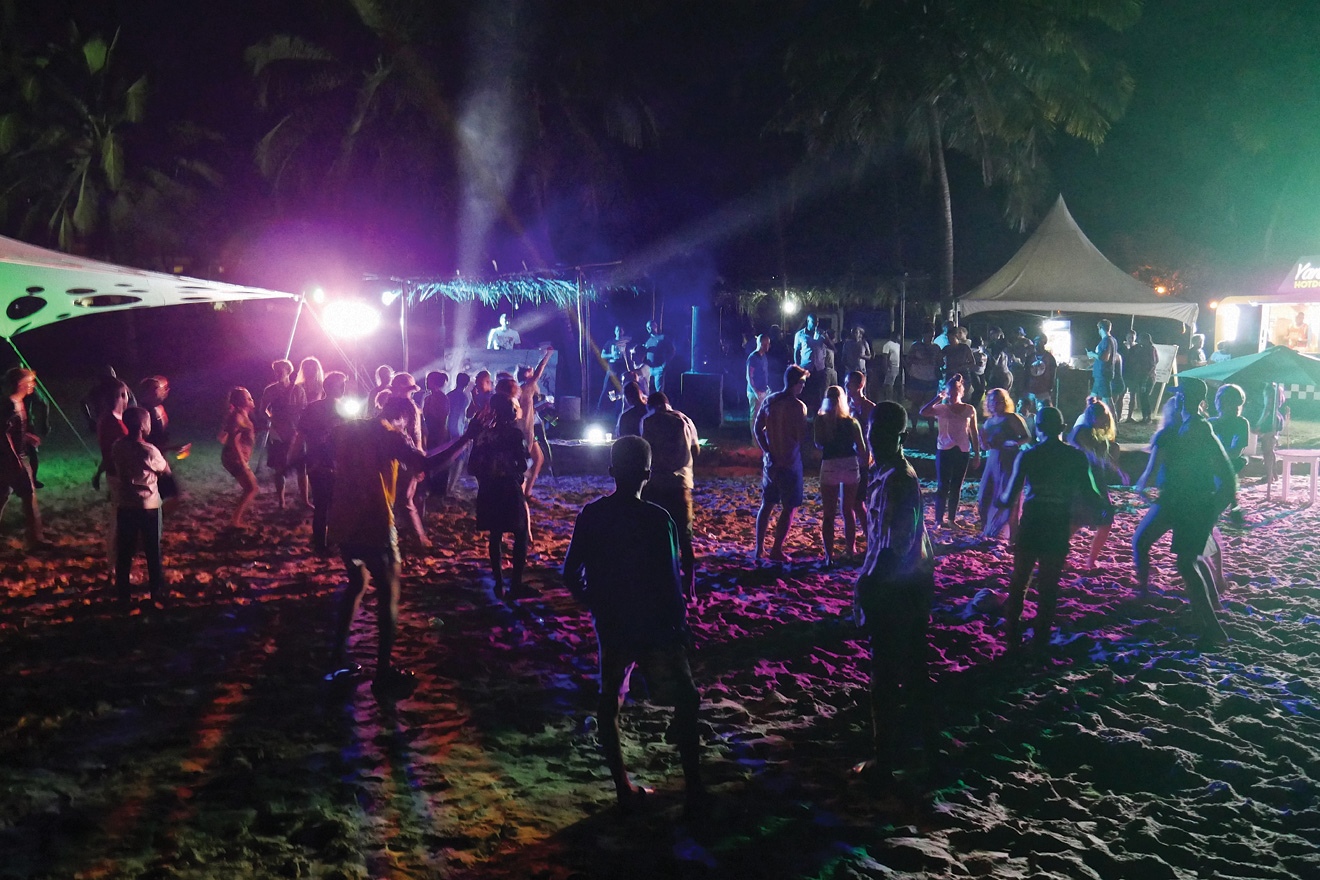
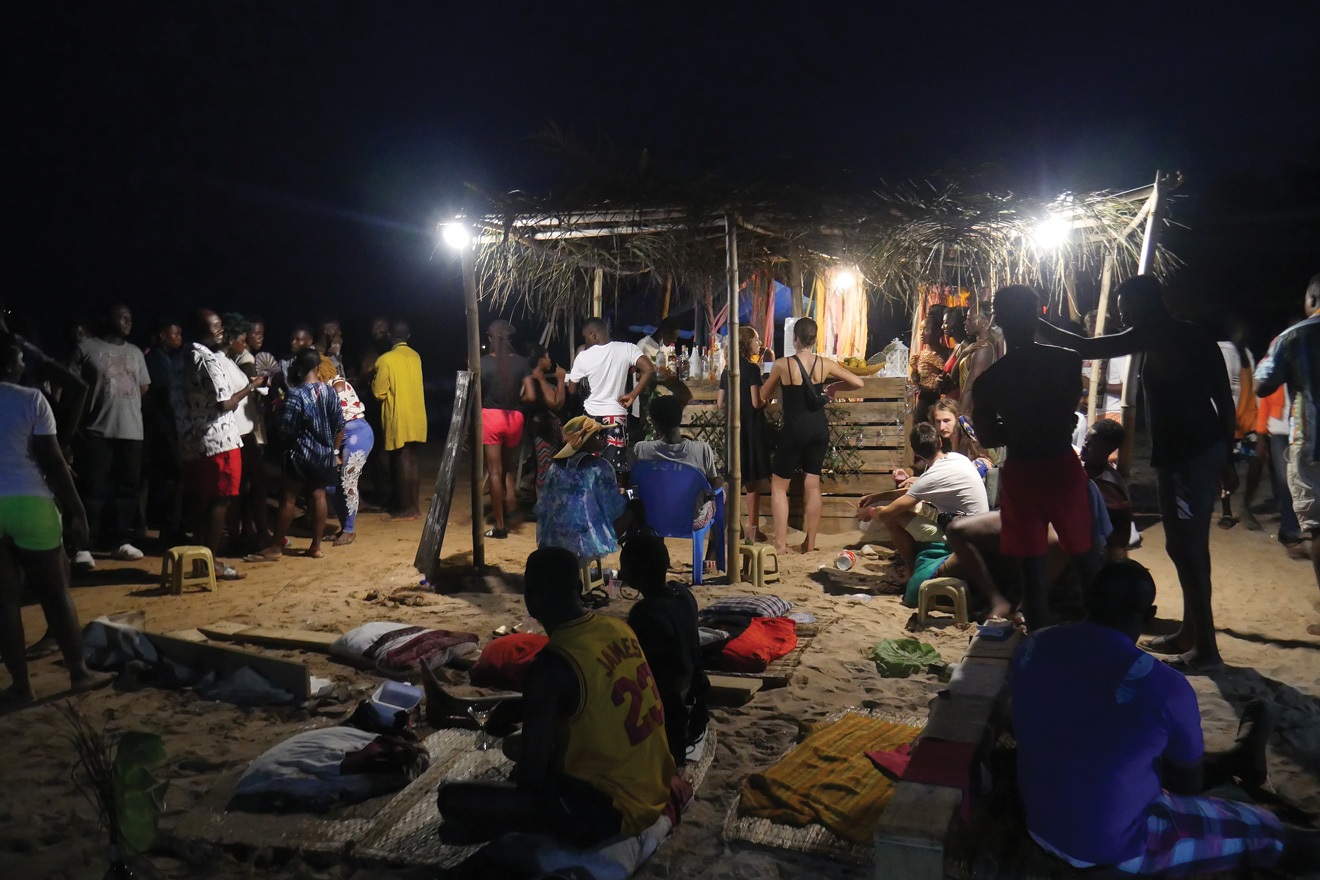
Joining him this year are established artists alongside local emerging talent defining the sound of modern Ghana and Africa, playing afrobeats, afro-EDM, funk, afrohouse, afrobeat, old school, dancehall, hip hop, afro-UK bass and afrobeats house. Indeed, the music is incredibly varied – one night we hear a proper ‘88-’89 early evening Balearic set played by a 21-year-old DJ from Accra; at another venue we witness the crowd going mad to a hard house mix of Britney Spears ‘Toxic’ before a gangsta rap set closes the stage at 5am. At a time when afrobeats and its variations are riding an international wave, Asa Baako – inspiring, vibrant and confident – is yet another example of Africa both embracing dance music culture and making it its own.
Read this next!
In Bloom: Accra's explosive club scene is like nowhere else on Earth
Nyege Nyege is a genuine, experimental African utopia at the source of the Nile
West Africa's hardest-partying country: How the Oneforce amplified The Gambia's revolution

